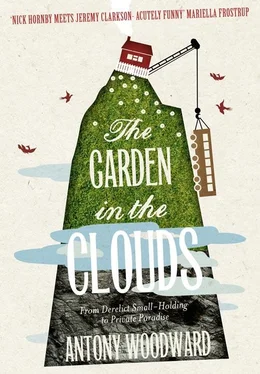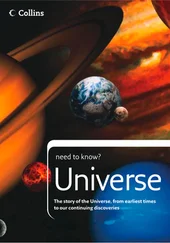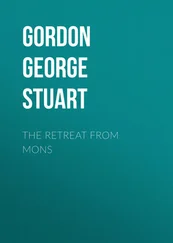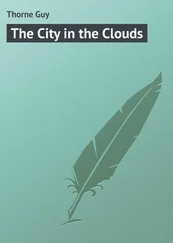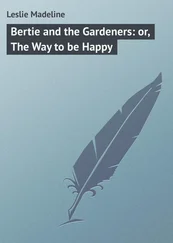Although, technically, we’d all grown up in the country, in as much as our house was located in rural Somerset, ours wasn’t a rural existence. My father would vastly have preferred to live in the town. We were there entirely on my mother’s account, because she was obsessed with horses. Although dedicated to his garden, his interest was in abstract, strictly non-productive gardening. Most day-to-day aspects of rural living my father cordially detested. The getting stuck behind tractors and milk lorries. The smell of muck-spreading. The filth and slime with which the lanes steadily filled from December to March. It was a point almost of pride that he possessed not a solitary item of the default green country wear sold by shops with ‘country’ in their name. He was repelled by traditional rural activities such as hunting, shooting and fishing and would not have dreamt of attending an event such as the Badminton Horse Trials, had the latter not been forced upon him by my mother. Visiting churches, distinguished gardens and occasional walks up Crook’s Peak were the extent of his rural ambitions. We kept no animals, other than horses, and grew no fruit or vegetables. He wished for no contact with country people and did not enjoy having it foisted upon him (such as when he answered the door to find Ken, the farmer at the top of our lane, following one of the periodic shoots through the adjacent wood, bearing the unwelcome gift of a brace of pheasants). He made no secret of the fact that he was in the country on sufferance and would have preferred to occupy a terraced house in Bristol or Bath. Maybe it was from him that I acquired the sense of rural root-lessness that had driven me up a Welsh mountain. *
Jonny, on the other hand, was in heaven, as he methodically inspected every inch of the place, shed by shed, rusty wreck by rusty wreck. For fifteen years, Jonny’s day job had been as a Formula One motor-racing mechanic, at one time ending up as head of Ayrton Senna’s car—thus maintaining the Woodward tradition of having a job sufficiently specialised to be utterly meaningless to other members of the family. He was so shy, with us at least, he’d never, under any circumstances, contemplate leaving answerphone messages. Yet his spiky handwriting, indenting at least three sheets of paper beneath the one he was writing on, hinted at his determination once he’d set his mind on something. In recent years we’d bonded, bizarrely, over an affection for old farm machinery; the key difference between us being that he was a mechanical genius. Machines in his hands sprang back to life, as plants did in my mother’s, and as they died in my own.
‘Pick-up cylinder off an International B74 baler…radiator off a David Brown…top link arm…link box flap…hitch and footplates off a Super Major. Did you know your hay trailer’s the converted chassis of a Bedford Army Four-tonner?’
I could tell Jonny was as approving as it was possible for him to be.
‘I just do,’ said Jonny.
We went into the house for lunch. ‘What’s going there?’ asked Jonny, indicating the empty space left for the Aga.
‘An Aga.’
‘An Aga? How awful ,’ said my father.
‘Oh, I don’t know. I rather like an Aga,’ said my brother. ‘What colour are you getting?’
‘Cream.’
‘Thank goodness for that.’
After lunch, Jonny returned to his inspection outside, exactly where he’d left off.
‘This hay rake’s been converted. Look, you can see where it used to be horse-drawn and they’ve welded a tractor hitch on. See, just there. Bamford’s side delivery rake…mmm, nice.’
‘What’s this called?’ We were standing next to a particularly eccentric-looking appliance which consisted of four huge metal wheels in an offset row, each spoked with sprung metal tines. From seeing it in the fields as a child, I knew it had been used for turning hay.
‘A Vicon Lily Acrobat.’ He enunciated the syllables slowly, ironically. We all smiled.
‘How do you know this stuff?’ said my father.
‘You’ve got three Ferguson ploughs, so whoever was here before you obviously had a Fergie. And a lot of this other kit’s for a Fergie too: the potato ridger, the spring tine cultivator. You can see it all used to be painted grey. Hmm,’ said Jonny, surveying it all. ‘Looks as if you’d better get yourself a tractor.’
Gradually, we began to meet our neighbours. Key amongst them was Ness, darkly beautiful, gypsy-like, striding the hill with a long-legged gait and her sheepdog Molly. She lived in a cottage behind a hedge on the lane and talked with a force and speed I have yet to encounter in another human being, as if life were too short to leave gaps between words. She was also, it soon emerged, a kind of self-appointed guardian of our corner of the National Park, waging a lone battle against what she regarded—aptly, in many people’s view—as mediocrity, idleness, bad taste, stupidity or the general failure of officialdom to discharge its duties adequately. Gratuitous street-lighting, crass development, over-signage—all fell within her remit as unofficial custodian. Early on I’d had the privilege of hearing her in action when I’d dropped in for something. Some ominous big ‘C’s had recently appeared in yellow paint on the trunks and branches of various trees on the lane up the hill, including one on the bole of a mighty, spreading oak. I found her pacing the room with a phone hooked under her chin. ‘So,arewequiteclearonthisMr.—?Ifanything— anything —happenstothattreefollowingthisconversation…IhaveyournameheresoIknow exactly whotocomebackto.’
It was clear from her tone that her blood was up, that she’d been fobbed off by one jobsworth too many claiming he or she didn’t know what the markings meant, or that they were there in the name of health and safety. I watched agog as, with hurricane-force indefatigability, she worked her way up the hierarchy of plainly shell-shocked and unprepared officials until, when she decided she’d got far enough, she delivered her pièce de résistance: ‘Isthatclear?ForyourinformationIhavebeentaperecordingthisconversation,so,asIsay,Iwillbeholdingyou personallyresponsible. Thankyouverymuch.’ She put the phone down. ‘That should stir them up a bit,’ she said cheerfully, lighting a Silk Cut from a lighter marked ‘BUY YOUR OWN FUCKING LIGHTER’. ‘Now,canIofferyouacupofcoffeeord’youwantsomethingstronger?Gladyou’vecalledinbecauseI’vebeenmeaningtoaskyou…’
I need hardly add that the sentenced oak still stands, wearing its yellow death warrant like a badge of honour, a daily reminder that battles with mindless bureaucracy can be won.
Ness became a vital source of information from the start, issuing us with contact sheets of trusted local artisans, sources and suppliers, each accompanied by comprehensive briefing notes. Another was Les the Post. We enjoyed what must be one of the best-value mail services in the British Isles, with Les frequently negotiating two gates and a mile of rough track simply to deliver a flyer promising ‘Anglia Double Glazing now in your area’. He was regularly to be seen chivvying stray sheep back into their fields (being familiar with every local farmer’s markings) where we would just push uncertainly by, often herding them ever further from home. Start a conversation with Les, however, and, as he switched his engine off, you knew it was unlikely to last less than twenty minutes.
In February, we encountered our most exotic and colourful visitors to the hill. We’d had intimations of their presence, in the form of folded five pound notes wedged into cracks of the porch, or neat piles of coins left by the door, which we’d discover on Saturday mornings when we emerged, blinking, into the daylight. On this occasion, a car with long overhanging bundles on its roof-rack came racing up the track. It swept into the yard, and, without slowing, splashed through the muddy gateway to the field. Two figures leapt out and started untying the long bundles. After that, cars started arriving in a more or less steady stream. The wind was in the east. The hang-gliders and paragliders had arrived.
Читать дальше
